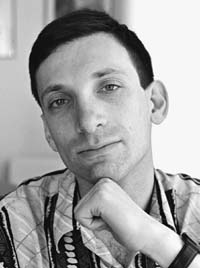Arbiter’s Heart

The former Russian president’s hospitalization became a litmus test for his influence. For twenty-four hours Yeltsin’s illness was headline news on Russian television and Internet outlets. The media tried to contact the Berlin clinic’s doctors and sent their European correspondents to the German capital. Indeed, Yeltsin’s state of health is an important factor for Russian political life. Without him the group usually called the Family in this country could hardly feel safe. Perhaps this was why Russia’s first president tried to appear in public as frequently as possible on the eve of his hospitalization. Yeltsin, who had not been heard from for several months, took part in the CIS jubilee summit and was awarded the order For Service To the Motherland, First Degree, by his successor. Then the ex-president could also be seen at the reception dedicated to Russian Constitution Day: he came together with his wife and daughters and occupied an honorable place between the head of the presidential administration and the Patriarch. Everything possible was done to demonstrate Yeltsin’s influence. At the CIS anniversary he spoke on the role of the presidential administration in the country’s life. At the Constitution Day reception it was Putin who spoke, but Yeltsin expressed his approval in his successor’s words about the impossibility of making changes to the Constitution to prolong the presidential term.
Perhaps Yeltsin’s circle remembered that the five years term without problems promised to the ex-president by American heart surgeon Michael DeBakey after the well-known shunt operation is coming to an end. New serious health problems could appear. Thus, it is worth reminding people of Yeltsin’s possibilities while still possible.
It seems that the Family has overreacted. German doctors describe their renowned patient’s state of health as satisfactory. Yeltsin spent only a few days in Berlin. Still a question arises, which has no concrete answer for now: How will Russian political system function without Yeltsin? What will the relations be between the main personages and the leading groups? Who will undertake the role now played by Yeltsin with no big stir: the role of an adviser to whom it is impossible not to listen or an arbiter with whom it is impossible to disagree? And, after all, is the Russian political system able to exist without such an arbiter?






